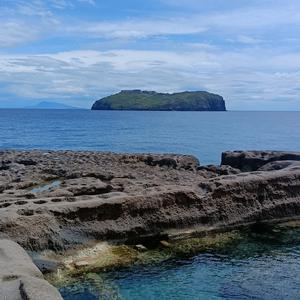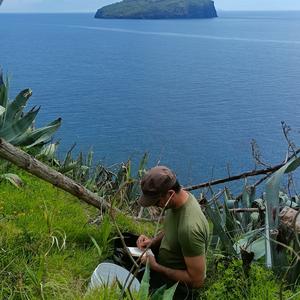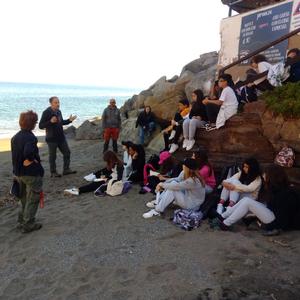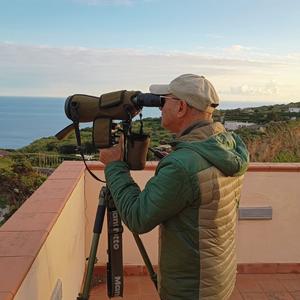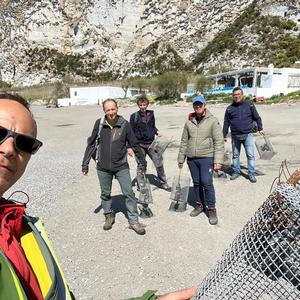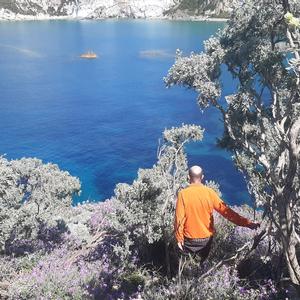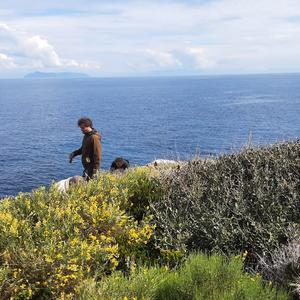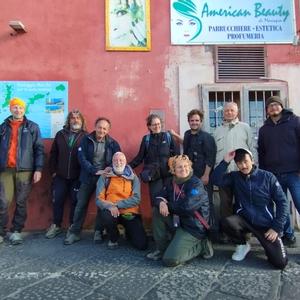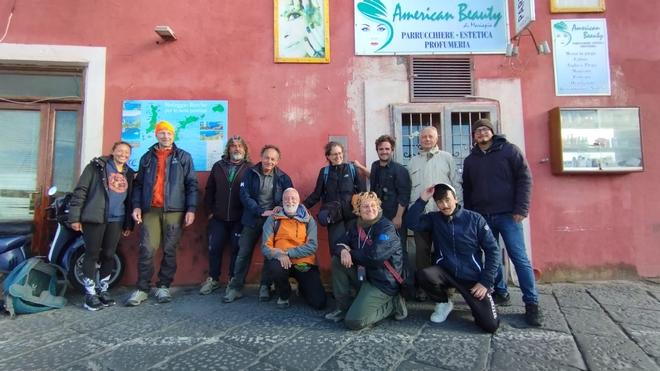
25 April 2023
A busy week in mid-April. Four busy days and the PonDerat team literally went all out. Some of us embarked for Ventotene where we checked the bait stations and other biosecurity stations that allow us to constantly monitor the situation on the island with regard to the presence (or rather the absence) of rats; a check that is currently being carried out at less frequent intervals than in the first phase of the project. Remember that to finally declare victory, we have to wait two years after the last detected rat trace. Not much longer. Let's keep our fingers crossed and our guard up.
Also, in Ventotene, some of us took the opportunity to join Sara Riello of the State Natural Reserve and Ferdinando Corbi (Pontine Ornithological Group) during a raft monitoring session of Yelkouan shearwaters off the island of Ventotene. We will follow these and other seabird monitoring activities and report on them in the coming months. These actions are also essential for feedback on the work carried out.
At this time, the island is frequented by many classes who have chosen Ventotene for their school camps. What better opportunity to meet girls and boys and tell them about PonDerat and all that we have done in recent years for the conservation of habitats and species on the Ponziane Islands. In particular, we would like to thank Professor Irene Amici and the girls and boys of the II E of the Istituto Comprensivo Piaget Majorana portrayed in the photo we post.
Another small PonDerat delegation embarked for Ponza. From here some of us left to go to Palmarola to carry out an inspection. We hope to be able to return to work on this beautiful island. Conservation work on important habitats and species is absolutely necessary.
The mission to Ponza was also an opportunity to meet with a delegation from PIM, an international programme to promote and assist the management of small Mediterranean islands. We talked about it during "Biodiversity Balloon", an event financed thanks to a competition (Celebrate Islands) promoted by PIM itself.
Our French friends explored minor rocks nearby Ponziane islands collected both faunistic and floristic data. Data that will be added to those collected during their visits to other small islands in the Mediterranean (they had previously visited some small islets in tfront of Amalfi, while the next stop will be in Greece).
In short, in four days we work about biosecurity, environmental education and awareness-raising, scientific monitoring and networking, trying to maximise our mission in the Ponziane Islands. Non too bad.We return to the mainland tired but satisfied. Until next time.
